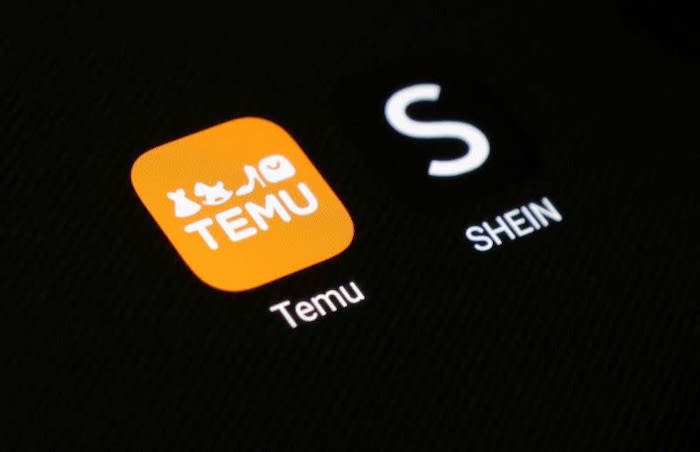Prices for items traded by Shein, Temu and Amazon Haul are expected to rise for American shoppers, analysts and industry experts said.
That’s because US President Donald Trump shut a trade loophole this week that these companies have exploited to ship low-value packages duty-free from China.
Fast-fashion retailer Shein and online dollar-store Temu, both of which sell products ranging from toys to smartphones, have grown rapidly in the US thanks in part to the “de minimis” exemption enabling them to keep prices low.
ALSO SEE: China Hits Back Against US Firms, as Trade Tensions Heat Up
Temu and Shein together likely accounted for more than 30% of all packages shipped to the United States each day under the de minimis provision, the US congressional committee on China said in a June 2023 report.
Trump’s halt to Section 321 de minimis is part of his implementation of an additional 10% tariff on China and 25% tariffs on Canada and Mexico, which were paused for a month. Nearly half of all packages shipped under de minimis come from China, according to the same committee report.
“For companies like Temu and Shein this is obviously a very big deal because de minimis was one of the levers they used to be able to offer these low prices as well as ensure speed of products entering the country once they were shipped,” Juozas Kaziukenas, CEO of e-commerce data firm Marketplace Pulse, said.
Temu did not immediately reply to a request for comment. Shein did not immediately reply to a request for comment. It has previously said it supports reform of the de minimis provision.
“It’s probably about 5 points of margin difference, using de minimis or not, and e-commerce businesses usually have a 10% or 15% margin, so this is a very significant impact,” said Aaron Rubin, CEO of warehouse management software firm ShipHero.
ShipHero’s clients include logistics firms and small and mid-sized online retailers, which also benefit from the loophole, and have less financial capacity to absorb the hit.
Amazon set up Amazon Haul in November. This allows shoppers to purchase $5 handbags and $10 sweaters from China-based sellers, although they face longer shipping times.
While Trump’s crackdown on de minimis is likely to bruise Amazon Haul, said CFRA analyst Arun Sundaram, it is a new, and very small part of Amazon’s overall e-commerce business.
And shoppers in the US can buy products similar to those found on Haul, including $2 pencil sharpeners and $10 pyjama sets, on Amazon’s main e-commerce site at more expensive prices.
“If removal of the de minimis exemption disproportionately hurts companies like Temu and Shein, that should be a positive for Amazon,” said Sundaram. Amazon, which reports results on Thursday, did not immediately reply to a request for comment.
Eliminating de minimis gives Amazon the chance to compete on quality, price and shipping speeds on similar items to the ones Shein and Temu sell, said Gil Luria, an analyst at DA Davidson.
Warehouses in the US
Both Temu, a subsidiary of Chinese e-commerce giant PDD Holdings, and Singapore-headquartered Shein, which plans to list in London this year, have taken measures such as sourcing more products from outside China, opening US warehouses and bringing more US sellers on board, to mitigate the impact.
“So the lifting of de minimis will not impact 100% of the products they sell in the US,” said Kaziukenas, adding: “It will have an impact, but it’s not going to be the end of the reign of Shein and Temu”.
Both companies have brought more US and European sellers onto their platform and established warehouses in the US.
The vast majority of Shein’s products are still made in China, but it has started to diversify its supply chain, adding suppliers in Brazil and Turkey.
The cancellation of de minimis may add a few cents to the price of each product sold by Shein and Temu in the United States, said Sheng Lu, professor of fashion and apparel studies at the University of Delaware.
But ultimately the change could cause more pain for small and medium-sized online retailers who source from China, which have fewer resources to absorb the increased costs and adapt their supply chain.
“My studies consistently show that, unlike large companies, which have built an extensive sourcing network worldwide, small and medium-sized companies are more dependent on sourcing from China,” Lu said.
- Reuters with additional editing by Jim Pollard
ALSO SEE:
Trump Seen Blocking the ‘De Minimis’ Trade Loophole With China
US to Curb Cheap China Parcels: Temu, Shein Face Big Hit
Call for US Product Safety Probe of Items Sold on Shein, Temu
PDD Stock Plunges 28% as Revenue Hit by China Slowdown
Hundreds of Sellers Protest in China Over Temu’s Penalty Policy
EU Plans Duties On Cheap Goods From Temu, Shein, AliExpress: FT
China’s Shein Files For Potential London IPO as US Plans Stall
Temu, Shein Face Tough Online Content Rules As EU Users Soar
US Lawsuit Says Temu Shopping App Has ‘Hidden Spyware’ – AT
US Sanctions 8 Chinese Drug Companies for Fentanyl Trade
























